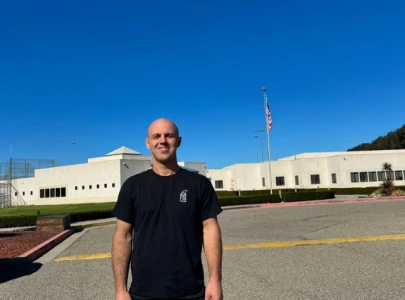

The TTP is not a monolith with a CEO calling the shots from a centralised office. It is a coalition of loosely affiliated extremist groups collaborating to fight a common enemy. For this reason, it is necessary to talk to the various factions of the TTP and understand their motive for fighting. For some, it may be Pakistan’s support of the US, for some it may be retaliation for drone attacks or Pakistani military operations and for some it may be about implementing Sharia in Pakistan. Only by talking will we be able to identify those factions of the TTP that we may be able to bring back into the fold of society and those factions against which force should be used. Through this process of incorporating the TTP factions with whom peace is possible on the state’s terms, we will isolate the true extremist factions and make it easier to take action against them.
Here is the flip side of the strategy. Talking with the Taliban doesn’t mean that we keep turning the cheek the other way while someone is slapping us senseless. At some point, you have to slap back and show the bully that you are willing to stand up for yourself. There should be absolutely no talks with factions of the TTP that continue to use violence against innocent civilians ever since the All Parties Conference decided on peace talks. This means that the government must take action against them. The fact that at times the main TTP spokesperson made efforts to distance the TTP from the attacks highlights the point further that the TTP is not a monolith and action against such groups is possible. As opposed to us painting broad brushstrokes and lumping all the TTP factions together, we should take full action against such TTP factions and continue to have talks with the TTP factions who respect the peace during the process of negotiations.
As an increasingly polarised society, there is a need for more nuanced narratives and a need for us to move on from the simplistic narratives of ‘us against them’. In a guerrilla war like the one we are in, it is difficult to define ‘us’ or ‘them’. Would you be willing to bet someone’s life on your ability to differentiate between a violent extremists or a civilian with conservative beliefs? For this reason there is a need for us to talk to TTP factions, so that we can identify those groups with whom peace is possible and isolate the hardliners further. At the same time, we must be comfortable with the seemingly contradictory idea of taking action against those TTP factions that have no interest in peace talks.
There’s a famous quote by Scott Fitzgerald, “The test of a first-rate intelligence is the ability to hold two opposing ideas in mind at the same time and still retain the ability to function”. Whether Pakistan is able to successfully resolve the issue of terrorism depends on whether we can pass this test.
Published in The Express Tribune, October 25th, 2013.
Like Opinion & Editorial on Facebook, follow @ETOpEd on Twitter to receive all updates on all our daily pieces.
COMMENTS (6)
Comments are moderated and generally will be posted if they are on-topic and not abusive.
For more information, please see our Comments FAQ


1725612926-0/Tribune-Pic-(8)1725612926-0-165x106.webp)









While I agree with some of what this article had to say, I think we often forget that many armed factions associating themselves with the Taliban (and using religion as a powerful political tool to manipulate and control its young ranks) are actually essentially mercenaries. By assuming that all Taliban factions are in deed "Islamic" or even independent, we are avoiding the reality that some outfits --- in deed some of the most violent --- have supporters outside our borders. In any case, we must deal with them all (completely indigenous, foreign-funded, etc etc)... and if negotiation is to take place, it must be on the State's terms. Any faction not willing to lay down arms must be met with fire.
Looks like the author does not read newspapers and is living in a dream world. Till Pakistan decides whether it wants to offer right cheek or left cheek for a slap from the TTP, it is going to be slapped not just on the face, but in other vital parts too. You cannot make virtue out of necessity and hope to confuse an already confused nation. A section of the population that is armed and does not recognize the country or its Constitution, wants to impose itself using the power of its gun. What do you want to talk when the state cannot deliver even a single demand. The nation cannot barter away the Constitutional liberties and freedom of all its citizens, without a challenge in the Courts. Wake up brother, this is not a time for delusions --- you are not going to be talking to Cindrella.
I agree with the content of this article. But an almost same, and far better written, one already appeared in ET a few days ago. Please ET writers come up with new content, rehashing same old without ANYthing new is just a waste of space.
@common sense: So things will be peaceful after the Americans/NATO leave Afghanistan in 2014! After all, we see how peaceful life is in IRAQ many years after the Americans left! Hmmm, So by your reasoning, the 30,000 plus Pakistanis slaughtered by the TTP types over the years were all because of the Americans in Afghanistan!!
@common sense: The TTP will be murdering people in Pakistan long after the US has packed up and left.
the best solution is to exit out of alliance with US in false war on terror. This is the reason why reactionary groups like the TTP exist. It is that simple, and the only way peace can be brought to Afghanistan and Pakistan, and rest of region.
US presence is the reason for instability. Pakistan's economy will never revive as long as it supports false war on terror.